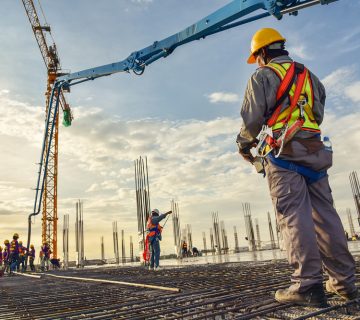Construction delays can be frustrating and costly for all parties involved. Whether you’re a property owner, developer, or contractor, delays can cause financial strain, legal complications, and potential damage to relationships. Understanding the common causes and the steps you should take when faced with a delay can help you navigate this situation effectively.
Common Causes of Construction Delays
Construction delays can occur for various reasons, some of which are avoidable, while others may be beyond your control. Here are some of the most common causes:
- Weather Conditions Unpredictable weather, especially rain, snow, or extreme temperatures, can halt or slow construction. While contractors often account for weather in their timelines, unexpected conditions can still lead to delays.
- Labor Shortages The construction industry is susceptible to fluctuations in available skilled labor. A shortage of workers can result in delays, particularly if specialized skills are required for certain aspects of the project.
- Supply Chain Issues Materials being delayed or unavailable can slow down progress. This is particularly relevant in today’s global economy, where supply chain disruptions can cause significant delays.
- Design Changes When owners or stakeholders request changes to the initial design or scope of work, it can push back timelines. Even small changes may require additional planning, permits, and reworking, which leads to delays.
- Permitting and Regulatory Approvals Delays in obtaining the necessary permits and approvals from local authorities can bring a project to a standstill. The time needed for these approvals can vary widely depending on the location and complexity of the project.
- Financial Problems Issues such as funding delays, disputes over payments, or contractor financial instability can also contribute to project delays.
Legal Implications of Construction Delays
Construction project delays often come with significant legal consequences, particularly if there is no clear contract addressing how to handle delays. Without proper documentation or agreements, the parties involved may find themselves in disputes over responsibility and costs.
For instance, some contracts include liquidated damages clauses, which set a predetermined penalty for delays, while others may have force majeure clauses that protect contractors from delays caused by unforeseen events like natural disasters. It’s crucial to understand the terms of your contract and how delays are addressed to prevent misunderstandings and potential litigation.
If a delay becomes protracted, you may have grounds for a breach of contract claim or other legal remedies. However, resolving these disputes quickly and fairly often requires the guidance of an experienced construction defect attorney.
Steps to Take When a Construction Project Delays
When delays happen, there are several steps you can take to mitigate the impact and resolve the situation as smoothly as possible.
1. Review the Contract
Start by reviewing the contract terms, especially the provisions related to delays. Look for any clauses that outline how delays should be managed, including penalties, extension terms, or force majeure provisions. Understanding your rights and obligations according to the contract is essential in managing the delay.
2. Communicate with All Parties
Open and clear communication is crucial in managing construction delays. Talk to the contractors, subcontractors, and any other involved parties to get a clear understanding of why the delay occurred and how long it will last. Maintaining a positive relationship throughout the process can help keep things on track once work resumes.
3. Document the Delay
Documentation is key in the event of any disputes. Keep detailed records of the delay, including emails, meeting notes, and reports. Be sure to track any additional costs or losses you incur as a result of the delay. This information will be invaluable if you need to seek legal recourse.
4. Consider Alternative Solutions
Depending on the cause of the delay, it may be possible to consider alternative solutions. For example, if materials are unavailable, you may explore different suppliers or materials. If labor shortages are an issue, consider subcontracting portions of the work to other teams.
5. Assess the Financial Impact
Delays often come with additional costs, including extended labor, increased materials costs, or penalties for late completion. Work with a financial expert to assess the financial impact of the delay and make any necessary budget adjustments.
6. Involve Legal Counsel Early
If the delay starts to lead to disputes or financial strain, involving legal counsel early can prevent the situation from escalating. An experienced construction defect attorney can help you review your options, determine liability, and assist in negotiating a resolution. They can also guide you through potential claims for compensation if the delay is impacting your bottom line.
How We Can Help
At Stryker Slev Law Group, we understand the complexities that arise with construction delays. As one of the oldest law firms in San Diego specializing in construction law, we have the experience to guide you through every phase of a delayed project, from understanding the contract to resolving disputes. Our team handles high-profile construction defect and commercial real estate cases, offering personalized legal strategies that help protect your interests. Whether you are a contractor, developer, or property owner, we are here to help you navigate construction delays efficiently and with minimal disruption.
If you’re facing a construction delay or foresee potential issues, don’t wait until it becomes a costly problem. Contact us today for expert legal guidance.



